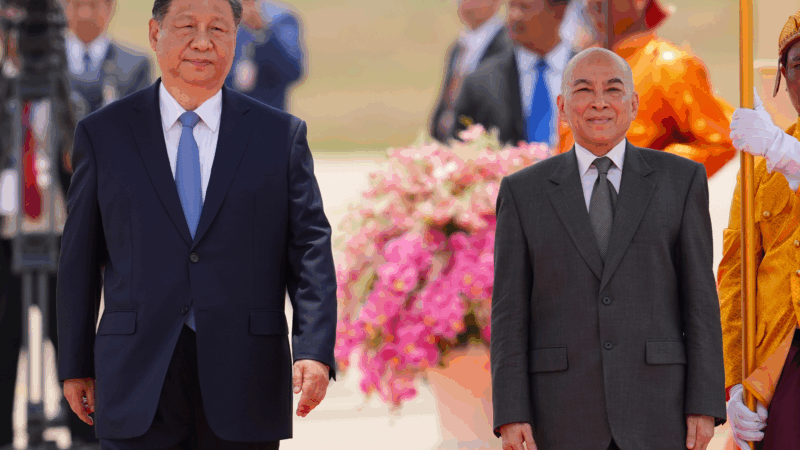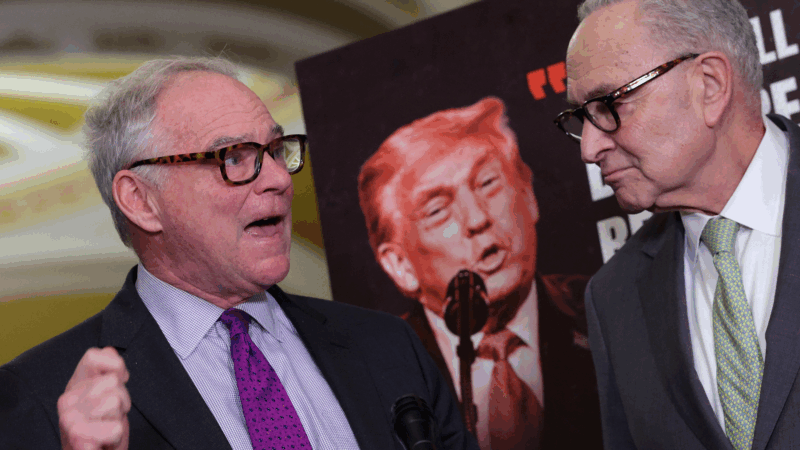China’s Xi Jinping arrives in Cambodia to wrap up 3-nation Southeast Asia tour
PHNOM PENH, Cambodia — Chinese President Xi Jinping arrived in Cambodia on Thursday for a two-day state visit that serves as an opportunity to further strengthen already robust relations.
The visit, Xi’s first since 2016, will conclude a three-nation Southeast Asian tour that included stops in Vietnam and Malaysia. China has been increasing its influence in the region over the past decade, largely by exercising its substantial economic leverage.
Cambodian Prime Minister Hun Manet recently described Beijing as “an important and indispensable friend of Cambodia that has helped support the country’s economic and social development.”
Xi was formally greeted at the airport in Cambodia’s capital Phnom Penh by head of state King Norodom Sihamoni. During his visit, Xi is also scheduled to meet Prime Minister Hun Manet and Senate President Hun Sen, who is Hun Manet’s father and predecessor as prime minister.
In a statement at Phnom Penh International Airport after his arrival on his presidential aircraft, an American-made Air China Boeing 747, Xi said he was “delighted” to visit again.
“Cambodia is a priority in China’s neighborhood diplomacy. China will unswervingly support Cambodia in upholding strategic autonomy and in pursuing a development path suited to its national conditions,” he said according to a transcript of his remarks distributed by the Chinese embassy.
Trade will likely be a major topic of Xi’s discussions in Cambodia, which faces among the highest tariff rates proposed by Washington. In addition to Trump’s universal 10% tariff, the country faces the threat of a 49% tax on exports to the U.S. once his 90-day pause expires.
In addition to discussions on strengthening bilateral ties and regional and international issues, several agreements are expected to be signed on cooperation in various sectors.
In both countries, Xi emphasized strengthening ties, particularly in trade and investment, amid global economic uncertainties and the backdrop of trade tensions with the United States. He underscored the need to oppose unilateralism and protectionism and uphold the multilateral trading system.
China is presenting itself as a source of stability and certainty as Southeast Asia scrambles to respond to tariffs imposed by U.S. President Donald Trump, which threaten the region export-oriented economies whose largest markets are generally the United States.
The visit comes on the 50th anniversary of the April 17, 1975 takeover of Cambodia by the communist Khmer Rouge, which imposed a reign of terror with Maoist-inspired policies that saw an estimated 1.7 million Cambodians die of starvation, overwork or executions.
Beijing was the main foreign backer of the Khmer Rouge and supported the group in carrying on a guerrilla war after it was ousted from power in 1979 by an invasion from Vietnam, though such history is rarely discussed by either country.
Cambodia’s rapid growth in recent decades has been fueled largely by Beijing.
In Hun Manet’s remarks earlier this month at the inauguration of a Chinese-funded road, he called China “a first-class partner country,” pointing to achievements like the inauguration of the Chinese-named Angkor Siem Reap Airport and a Phnom Penh ring road named after Xi as evidence of continued strong relations and gratitude, and noted China’s continued ranking as the top investor in Cambodia in 2024.
China is Cambodia’s largest trading partner, surpassing $15 billion in 2024 and representing nearly 30% of Cambodia’s total trade volume, though greatly in Beijing’s favor.
Beijing also helped fund an expansion of the Ream Naval Base on Cambodia’s southern coast, raising worries it could become a strategic outpost for the Chinese navy in the Gulf of Thailand. Cambodia has repeatedly denied any agreement granting China special privileges or the establishment of a foreign military base.
Cambodia has stated that warships from all friendly countries are welcome to dock at its new pier, provided they comply with certain conditions. Japan announced on Tuesday that two of its minesweepers will visit the Ream base this weekend in the first foreign navy visit since the expansion project was completed.
A split Senate votes against measure to constrain Trump’s authorities in Iran
Democrats in the Senate were facing an uphill climb Wednesday in their push to restrain President Trump's ability to wage war against Iran.
WATCH: How traffic dried up in the Strait of Hormuz since the Iran war began
The effective closure of the Strait of Hormuz is "about as wrong as things could go" for global oil markets. Iran achieved it not with a naval blockade, but with cheap drones.
As Mississippi waits to spend opioid settlement funds, children and families suffer
Mississippi will receive more than $400M to fight the opioid epidemic. So far, officials haven't directed it toward programs that support addiction recovery.
Alabama’s new state climatologist takes the reins
The controversial John Christy is retiring as Alabama’s state climatologist. Lee Ellenburg now assumes the role and is already making a few changes, including declaring that climate change is real and caused by humans.
Colossal Biosciences breeds controversy while trying to revive mammoths
A Texas biotech company is trying to bring mammoths and other extinct creatures back to life. The science is as intriguing as the ethical questions are thorny.
Mundane, magic, maybe both — a new book explores ‘The Writer’s Room’
Why are we captivated by the spaces where where authors write? Katie da Cunha Lewin set out to explore "The Hidden Worlds That Shape the Books We Love."






